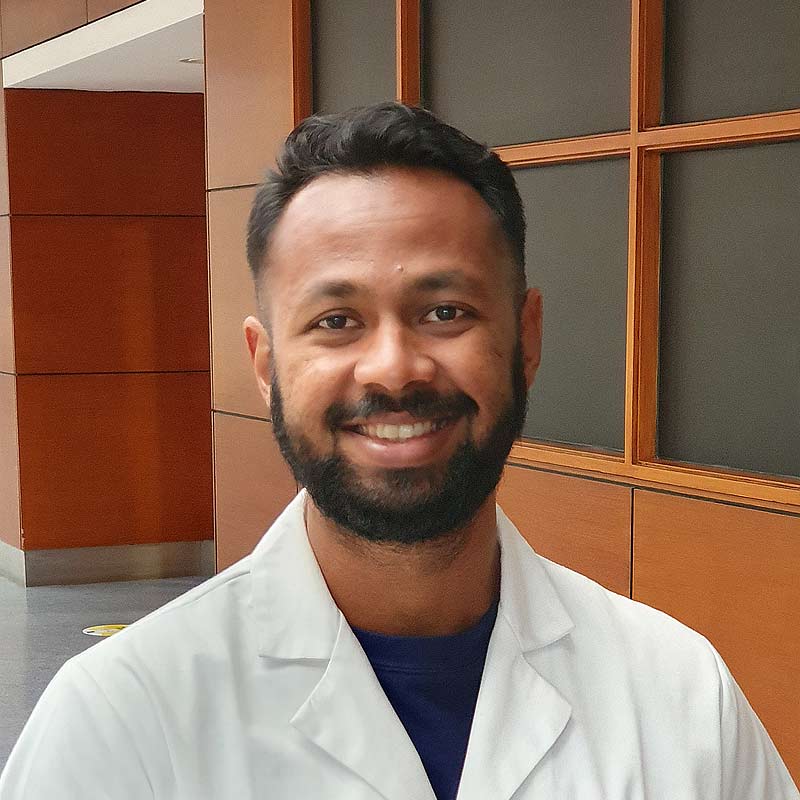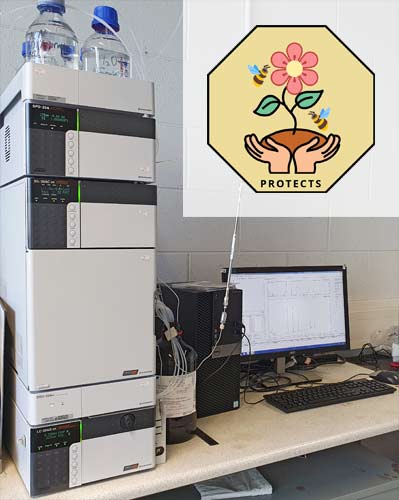Shimadzu Principal User Interview: Mathavan Vickneswaran MSc.

Mathavan Vickneswaran MSc. is a PhD researcher based in School of Chemical Sciences, Dublin City University (DCU). Mathavan has a masters by research in the field of ecological processes, from the Institute of Tropical Biology and Conservation, Sabah, Malaysia. Mathavan currently works under Associate Professor Dr. Blánaid White on the PROTECTS project, which is a collaboration project between DCU, University College Dublin, Trinity College Dublin, Maynooth University, and Teagasc, funded by the Department of Agriculture, Food and the Marine.
In the Natural Products Chemistry lab, Institute of Tropical Biology and Conservation, where I did my undergraduate final year project and Masters project. In this lab, there was a priority for Shimadzu instrumentation, as the lab had established a research collaboration with the Japanese International Corporation Agency (JICA). From this, they were able to acquire a considerable range of Shimadzu instruments from GC, GCMS, HPLC and TOC Analysers. He was really in love with Shimadzu!

I am currently working on the PROTECTS (Protecting Terrestrial Ecosystems through sustainable pesticide use) project as part of my PhD. PROTECTS is a collaborative project between DCU, University College Dublin (UCD), Trinity College Dublin (TCD), Maynooth University (MU) with funding support from the Department of Agriculture, Food and the Marine. As a team, we want to find out how pesticide use is impacting ecosystems, with importance given towards bees and other pollinators. We are looking at the entire picture, from the moment a pesticide is sprayed; we will look at the soil, at the pollinators and the crops. My project will be focusing on elucidating pesticide residues profiles in the Irish agricultural soil samples. We will also evaluate the overall toxicity of pesticide residues extracted from soil using our developed screening tool.
At this moment, I am comparing pesticide extraction methods and developing an HPLC instrumental method formeasuring the pesticides from soil samples. For these tasks, I am using a Shimadzu Prominence HPLC system. I am new to chromatography, but so far, I am doing well, the Shimadzu system at DCU is user friendly and very reliable.
Shimadzu are one of the best instruments I have used. They are sensitive and reliable; they don’t break down so easy, and the support is incredible.
We are in the early stages of the study, I started in January 2019. When I establish the best extraction and instrumental method, the next part of my project will be collecting soil samples from agricultural farms around Ireland. Simultaneously, I will be developing a DNA based biosensor tool that would present a particularly effective means of assessing the genotoxic damage potential of soil with pesticide residues. In the future, this technology will enable us to characterise soil samples cheaply and efficiently, and provide a tool for rapid assessment for end-users, specifically farmers. This tool will be further validated using our Shimadzu HPLC instrument.
In the future I will go to the Maynooth University to investigate the potential health impacts of pesticide use on the broader microbial and faunal soil communities, to fully understand and establish the chemical and biological aspect of pesticide use in the Irish agricultural field.
Our overall aim is to help the Irish farmers and the agricultural sector. We don’t have any intention of demonising pesticide use, as our aim is to provide information from my research project to help the farmers use pesticides safely and sustainably. With sustainable use of pesticide, we will be reaping the benefit of pesticide use, and as well as protecting wildlife, health and the environment, both in Ireland and internationally.
Definitely mass spec! If you can lend me a mass spec that would be nice!
I love research and teaching, hence I’d love to stay in academia. Being a lecturer and researcher is my dream job. But I’m also keen on working in the industry. Fundamentally, as long as in the scope of my future career, I can learn, explore and regularly pushed outside of my comfort zone, I would be happy.
RECENT POST
Introducing the Eppendorf Research® plus 4-Pack with e...
Apr 24, 2024
NewsMettler Toledo Launches New Generation of Laboratory Ba...
Apr 22, 2024
NewsMason Technology is one of Ireland's Best Workplaces&#x...
Apr 18, 2024
NewsWebinar: Thinking outside the mouse: ex-vivo dissection...
Apr 11, 2024
WebinarsUnderstanding Buffers in Liquid Chromatography
Apr 10, 2024
BlogExploring Texture Analysis in advancing Medical Device ...
Mar 26, 2024
BlogFreeze Drying Adviser Vol.2: Illustrated Toolkit for Ge...
Mar 13, 2024
White PapersSolvents Mixing Ratio in Liquid Chromatography
Mar 06, 2024
Blog
